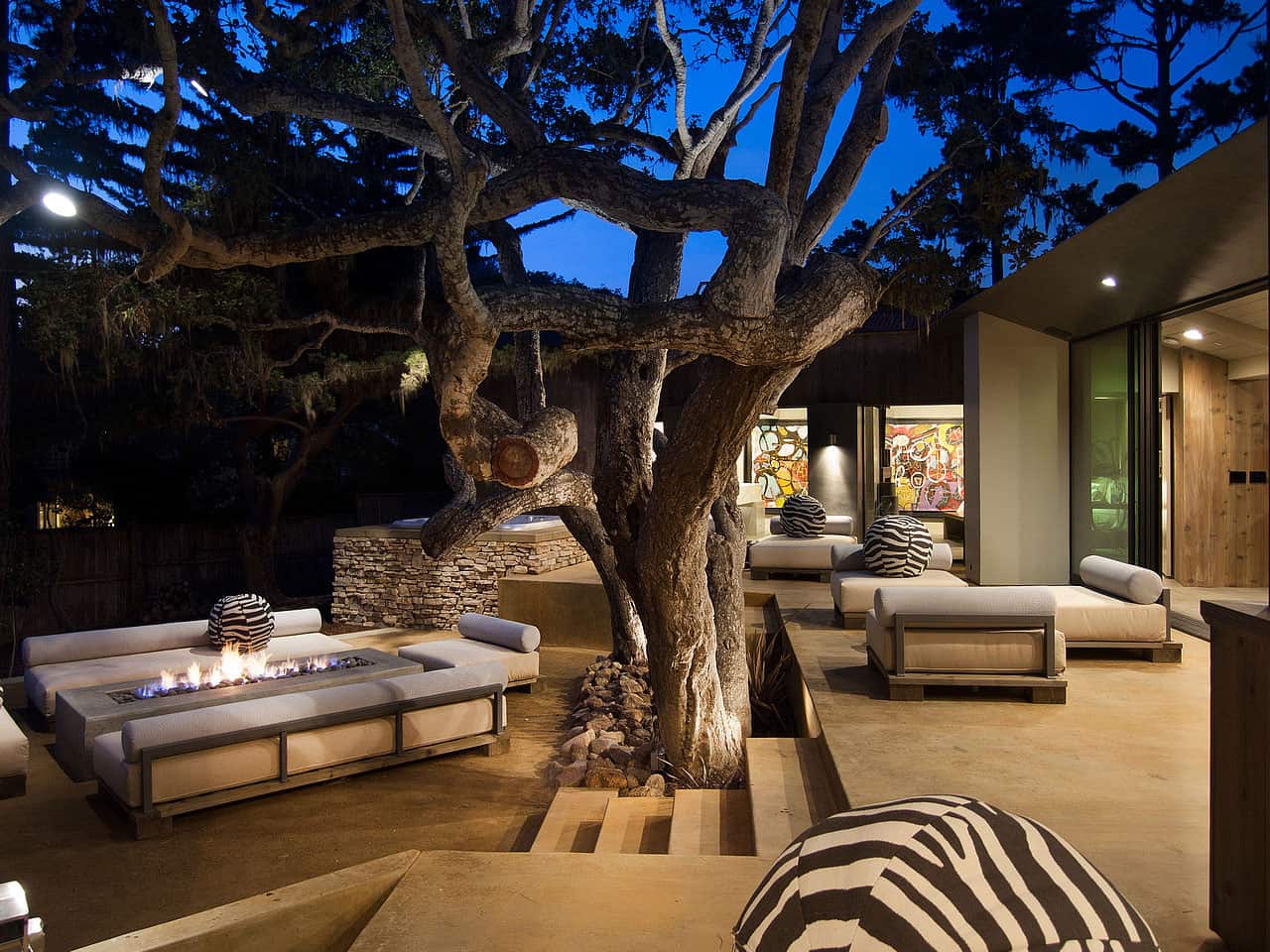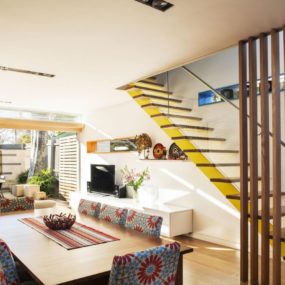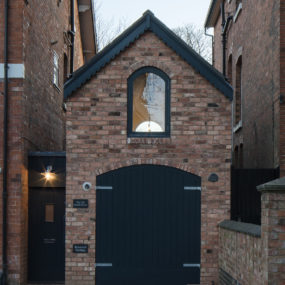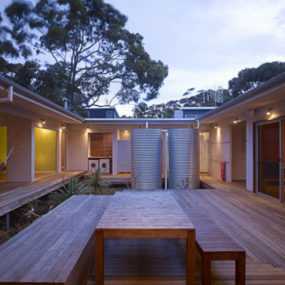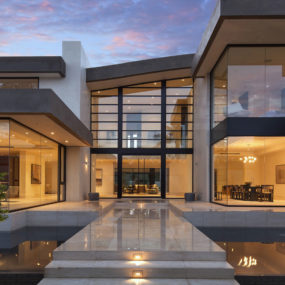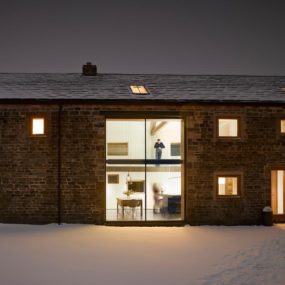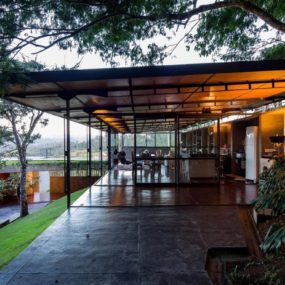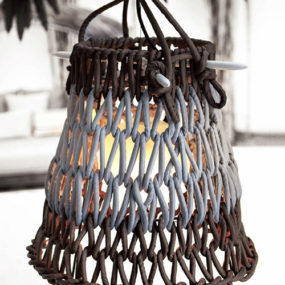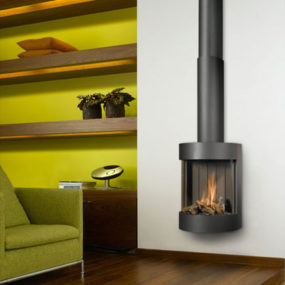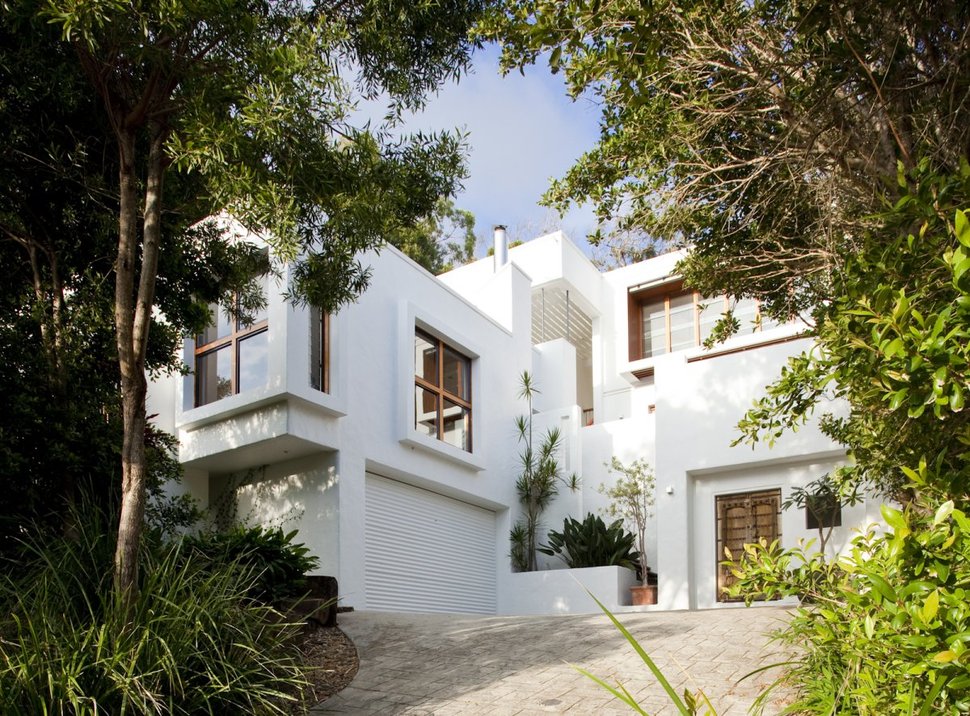
A renovation project undertaken by Australian company Wilson Architects, this home on a forested lot in Noosa, Australia utilizes a wide array of complex outdoor areas and transition spaces to connect every piece of the indoors to the beautiful woods on its property and to more distant beach views. From the front its general design theme is immediately apparent, consisting of rectangular prisms of all different sizes combined to create a complicatedly appealing form. Since such geometric strictness may be imposing and even brutalist on its own, a few measures are taken to bring approachability and warmth to the residence. All its window frames and doors are finished in medium-tone wood; plant life native to the area is sprinkled all over the exterior of the house.
Inside the abode, a similar theme ensues. All the rooms of the home have been significantly improved an modernized, with some becoming integrated into new outdoor spaces. Despite that, the decor of each room remains comfortable and actually fairly traditional, with clean and simple fixtures and furniture. The color palette throughout the home tends towards a mix of wood and a creamy white, mirroring the outside of the home. This similarity is essential to uniting indoor and outdoor spaces, especially in rooms that serve as a fusion of both. Each part of the house reflects on the building’s overall design, one which is truly modern yet also genuinely cozy for a family.
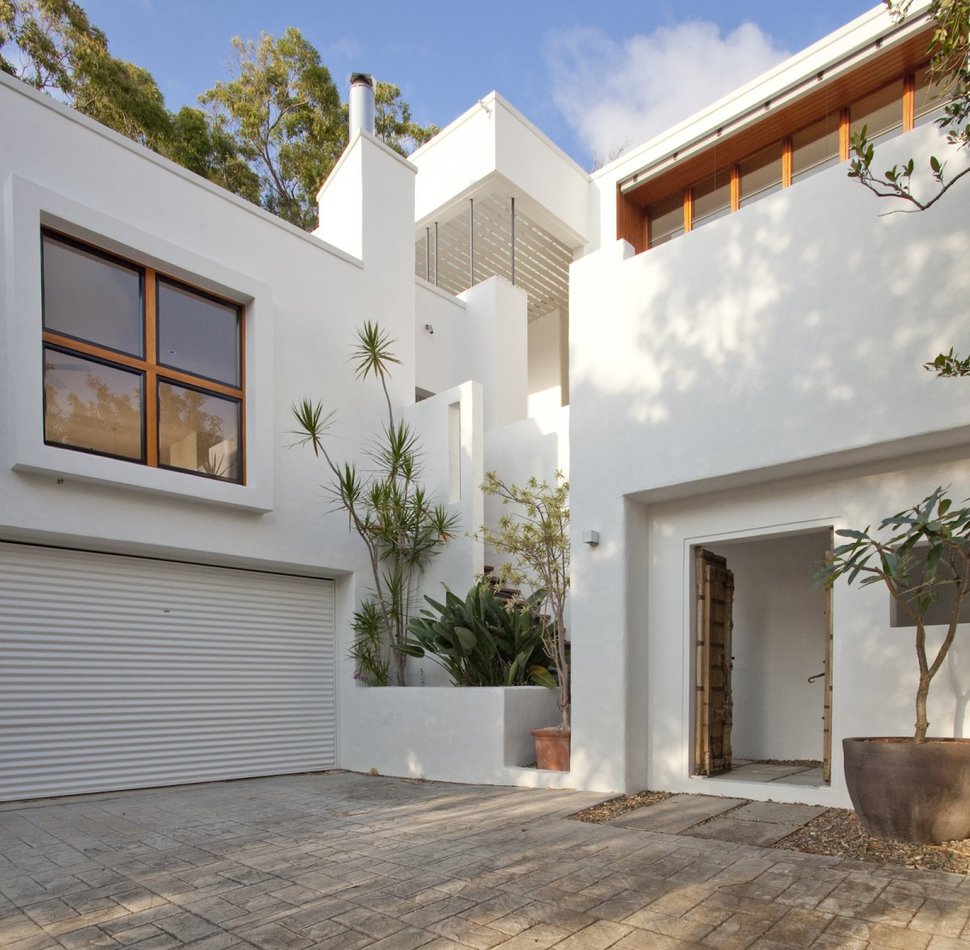
Even from the very front of the home, some of the complexity of its renovation is revealed. The home sits on three levels of usable space, and a geometric ode to those levels appears in the corner where the front door may once have been. The actual main entrance to the house is a low-profile, unframed double door to one side.
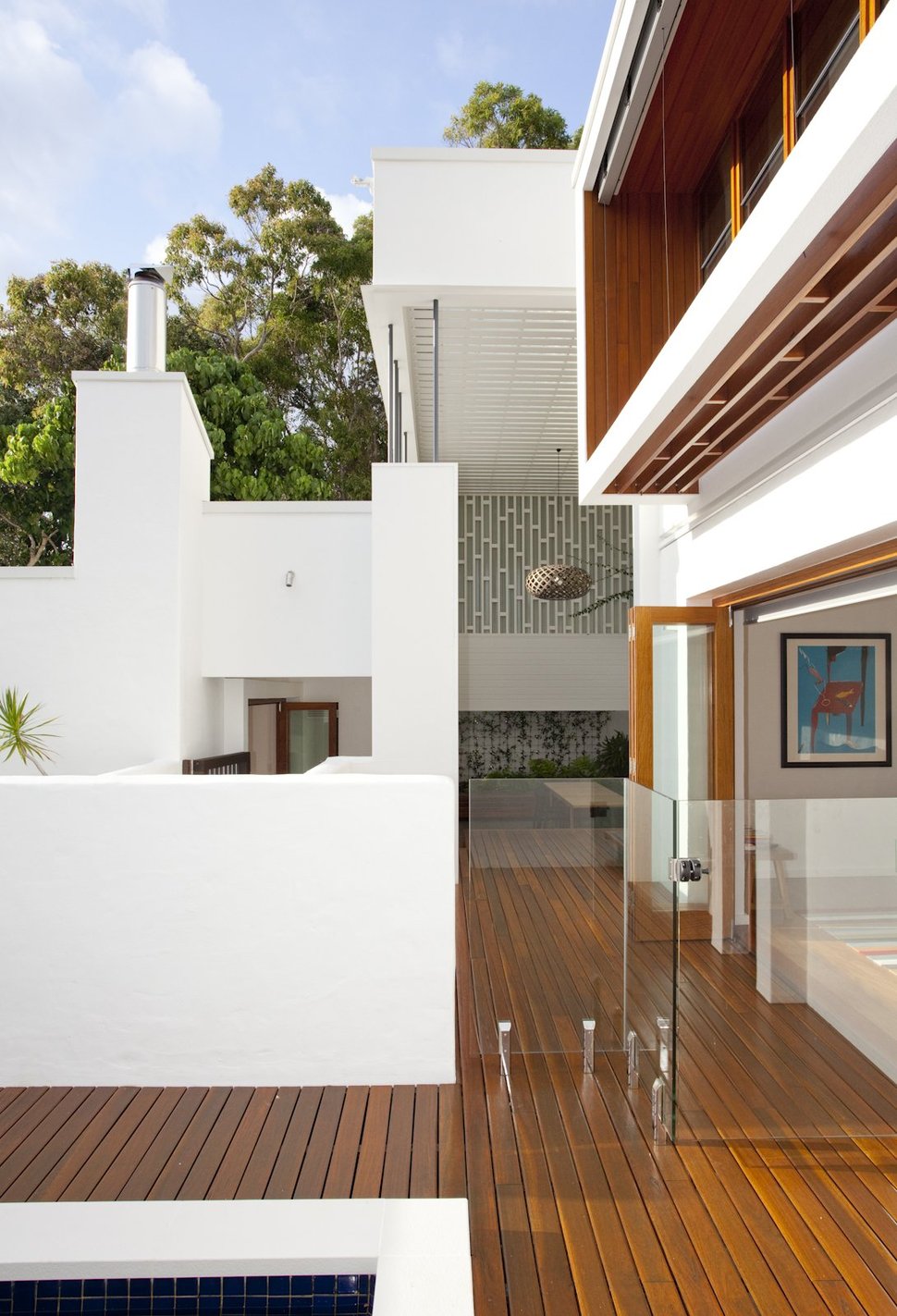
Ocne past the initial, rather conventional street-side face of the home, an expanse of dualistic spaces opens up, with nooks and patio decks easing into the home’s rooms. This unstructured space, culminating in a semi-enclosed courtyard, is the fruit of the building’s renovations.
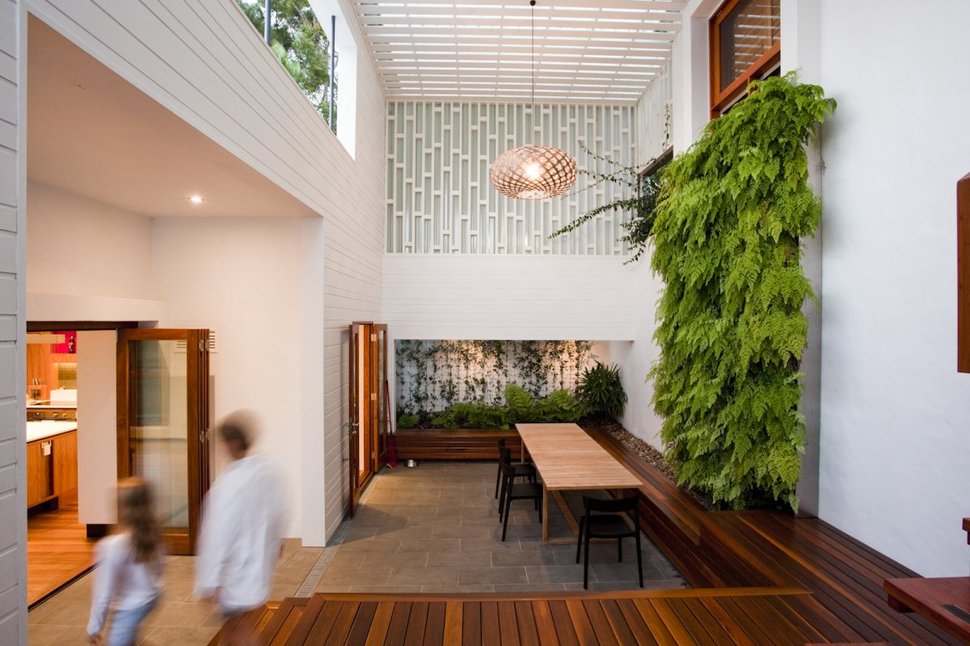
The central piece of the home is its indoor-outdoor courtyard, a lofty crossroads between the outdoors, public living spaces, and private chambers. As such, the two-story space has elements of all three. Wild plant life covers large sections of wall, while wooden flooring and furniture bring a domestic touch. It’s too open-air to be called a room; instead, it is a meeting point and thoroughfare.
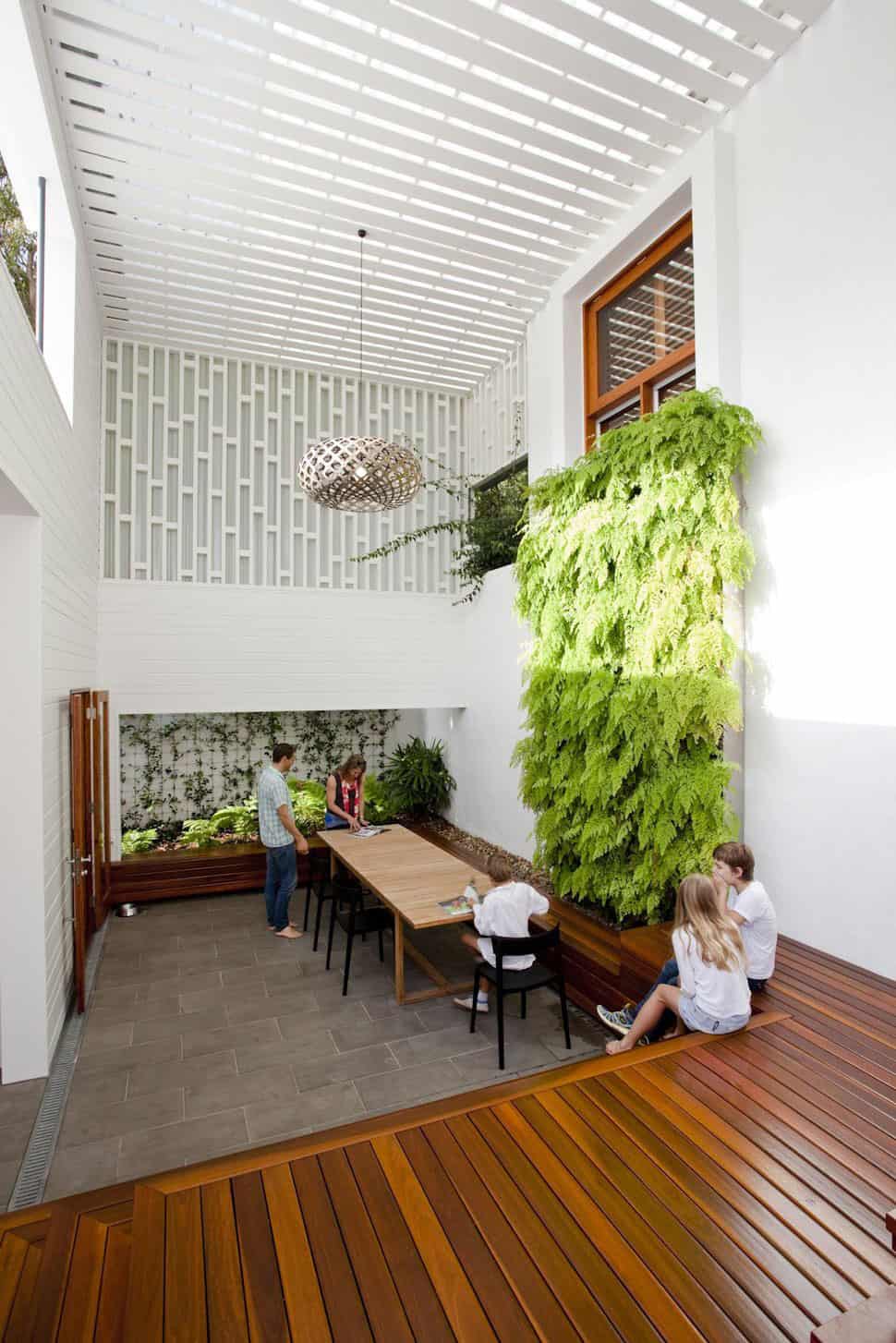
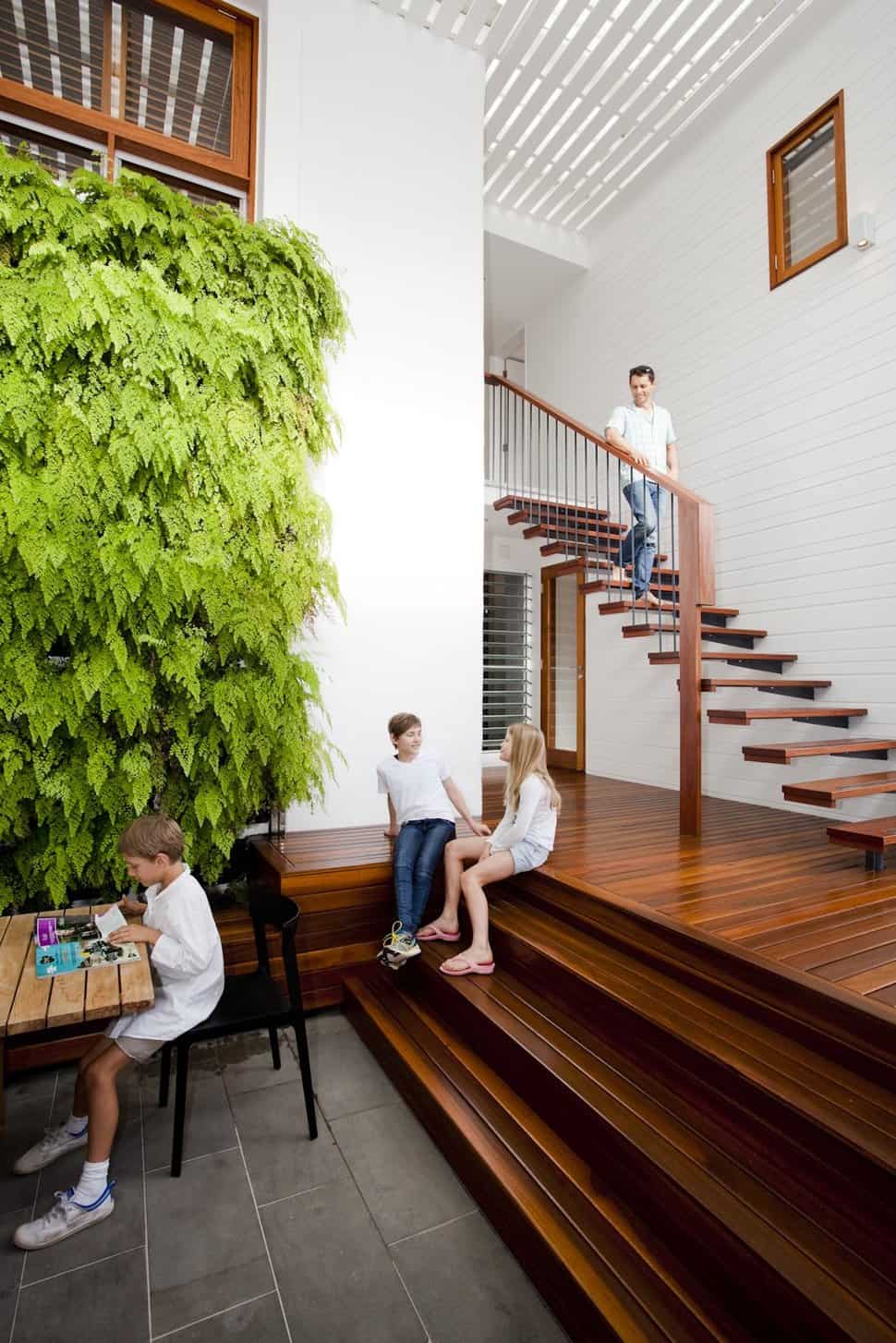
A set of stairs leads up the courtyard’s edge and into the private spaces of the residence.
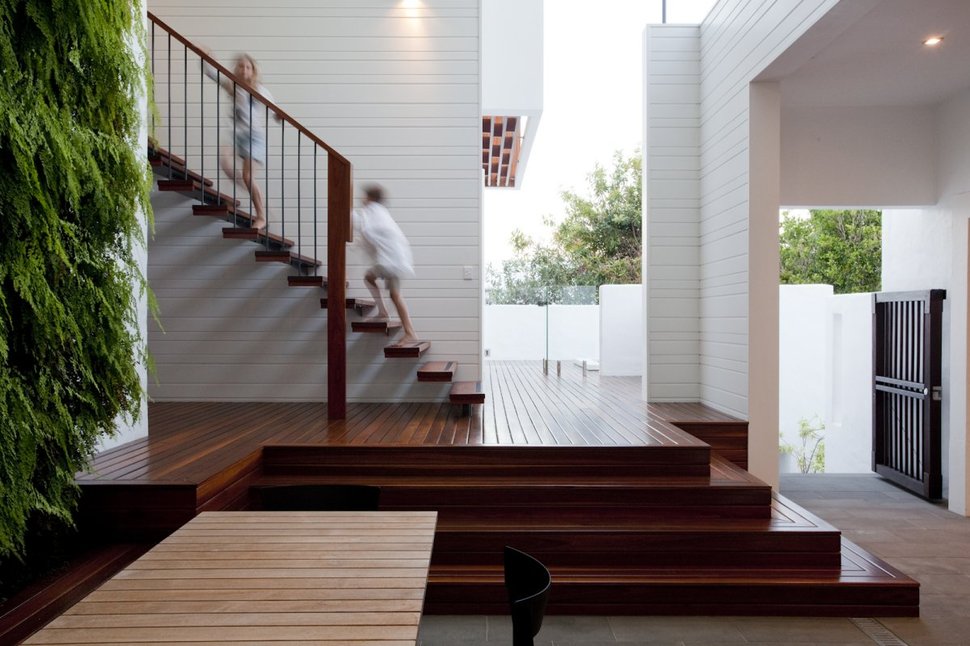
Direct access to the outdoors is easy on this side of the courtyard, with two different modes of egress for two different levels of the home’s deck and yard.
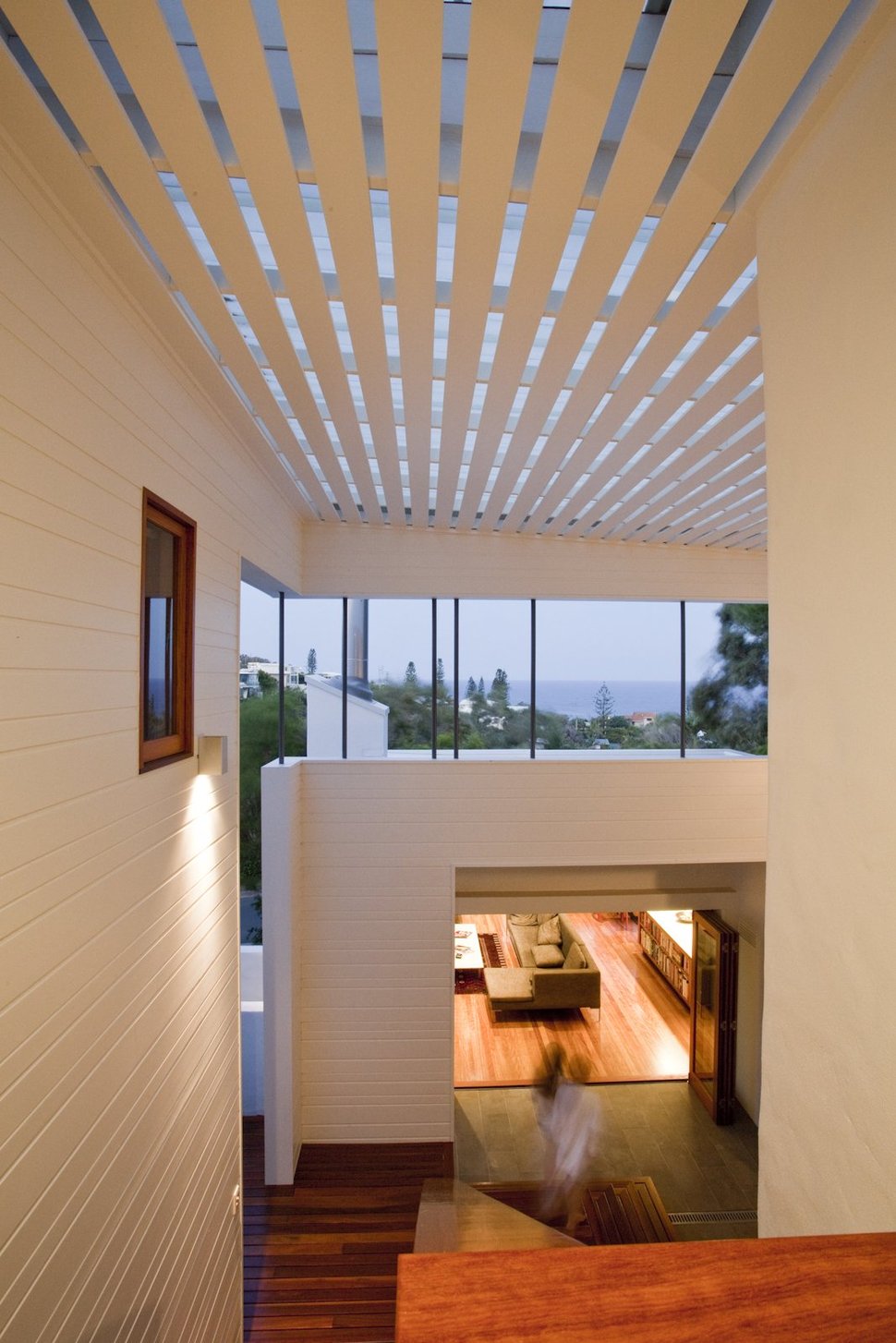
More of the dwelling’s unusual indoor-outdoor structure is revealed by a glance down into the courtyard, showing a loosely-defined area of glass, slatted roofing, and open-top walls. All of these elements coalesce to make the massive space feel wholly outdoors, even though it’s technically separated from nature.
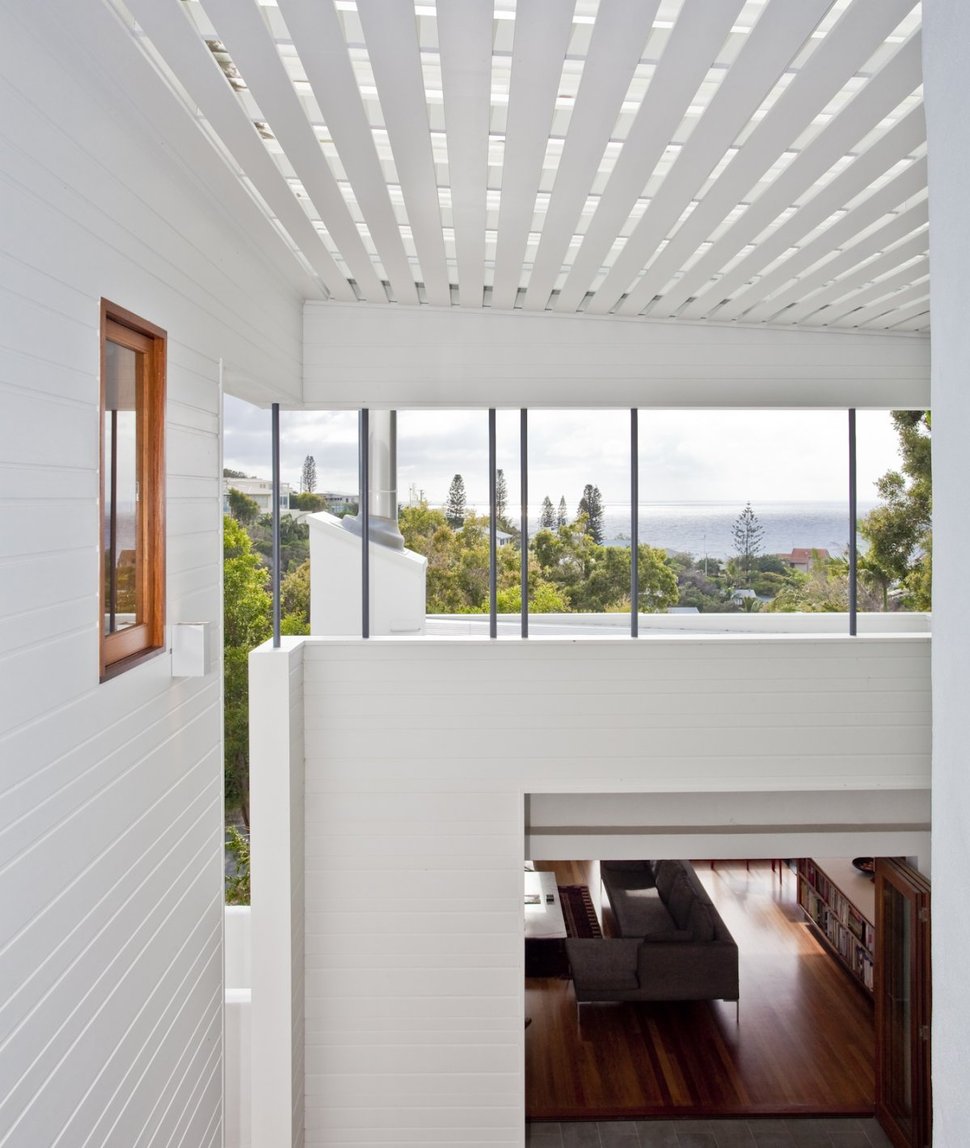
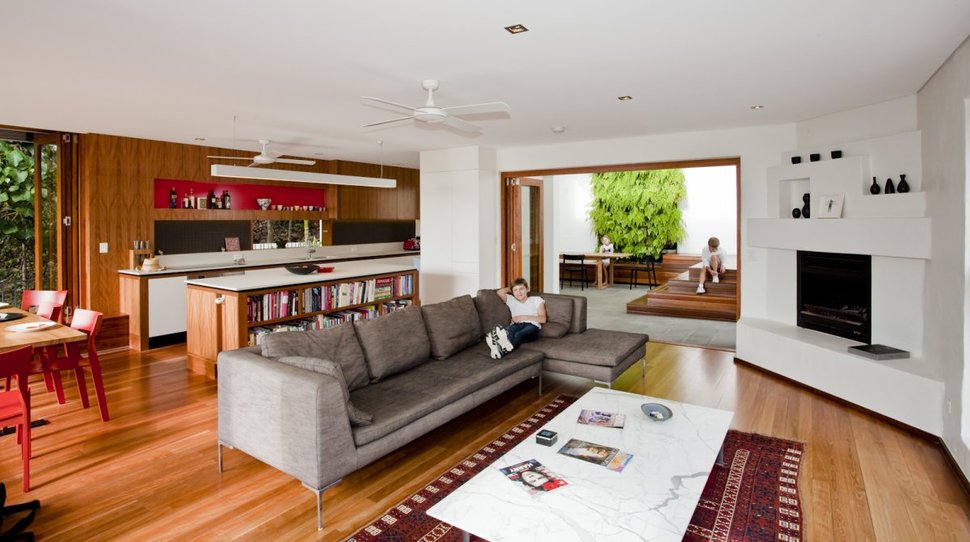
A family living space, with kitchen, dining, and lounging capabilities, sits on one side of the bottom of the house’s courtyard. This room perhaps best demonstrates the age of the home pre-renovation, but does so in an extremely comfortable and chic manner.
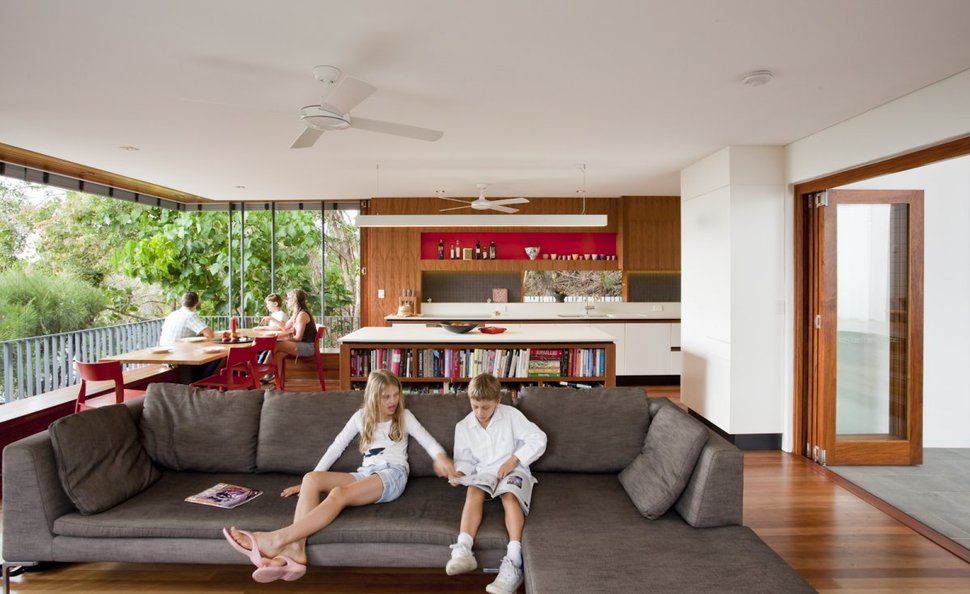
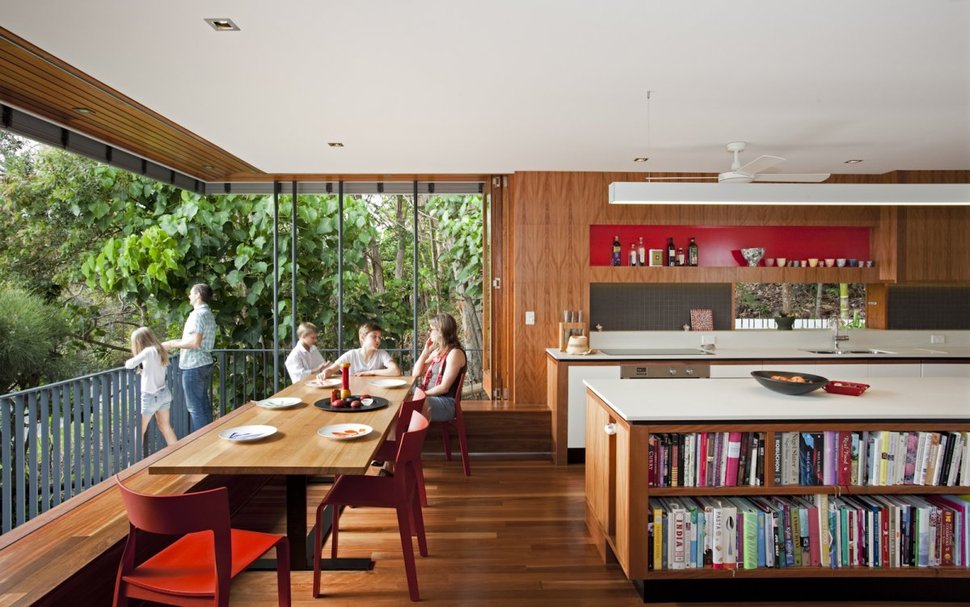
Each major room of the home features plenty of open glass area; the kitchen boasts a system of retractable panes leading out onto an open-air balcony.

A smaller, second living area serves a single purpose (as opposed to the dual kitchen and living room seen before), with a large aperture on one side leading back out into the extensive outdoor space around the building.
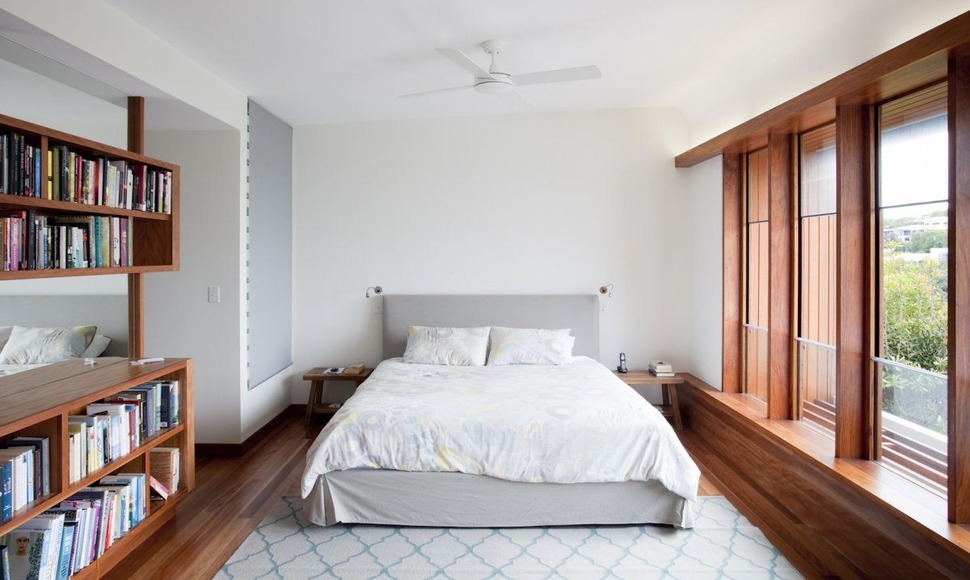
Warm wood is worked off the floor and onto the walls, framing storage and a large set of windows in this serene bedroom.
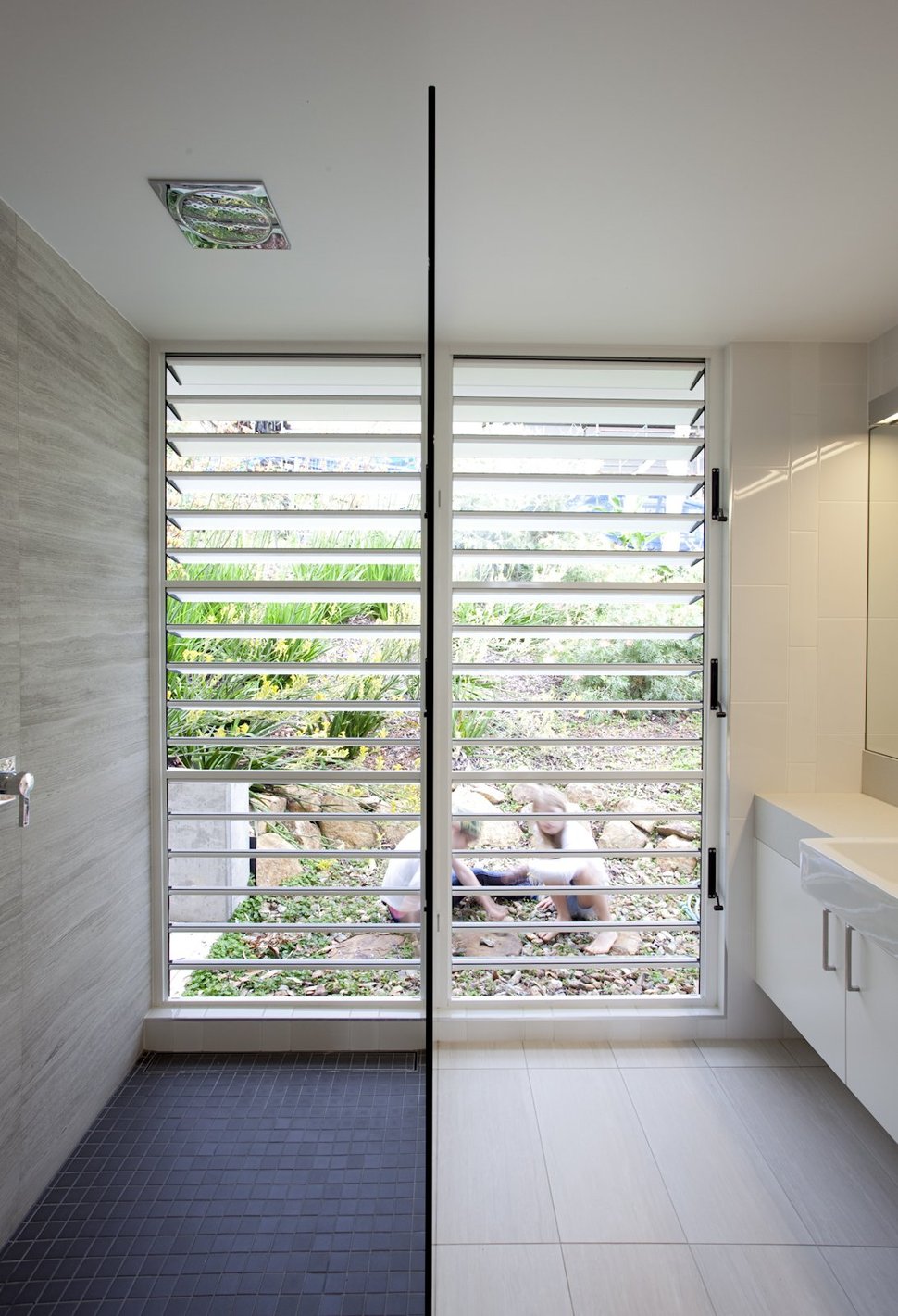
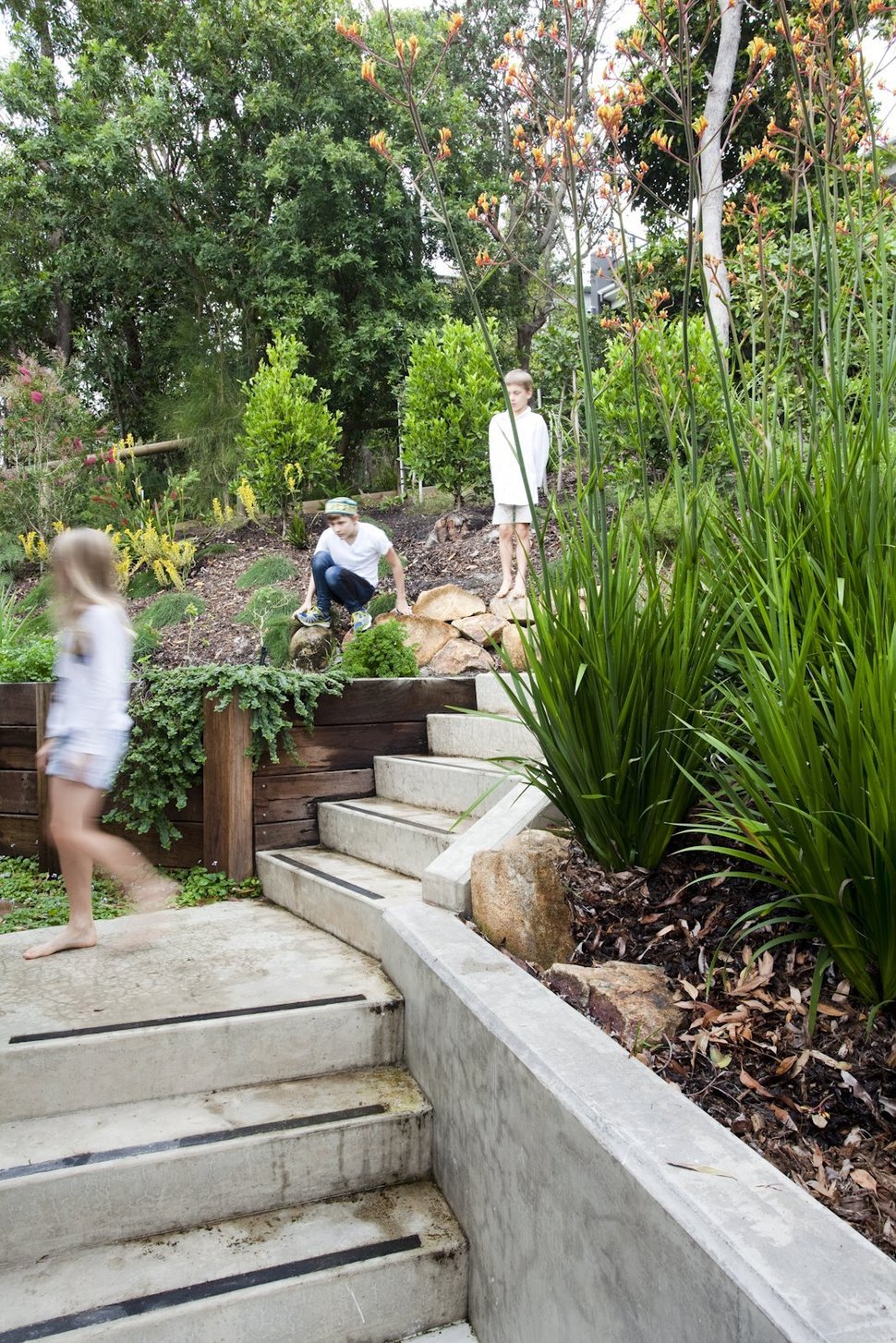
Since the home is a renovation, it is already more established in its surroundings than many modern designs. The landscaping here has been maintained for a number of years, with forest growth all around the home.
Wilson Architects
